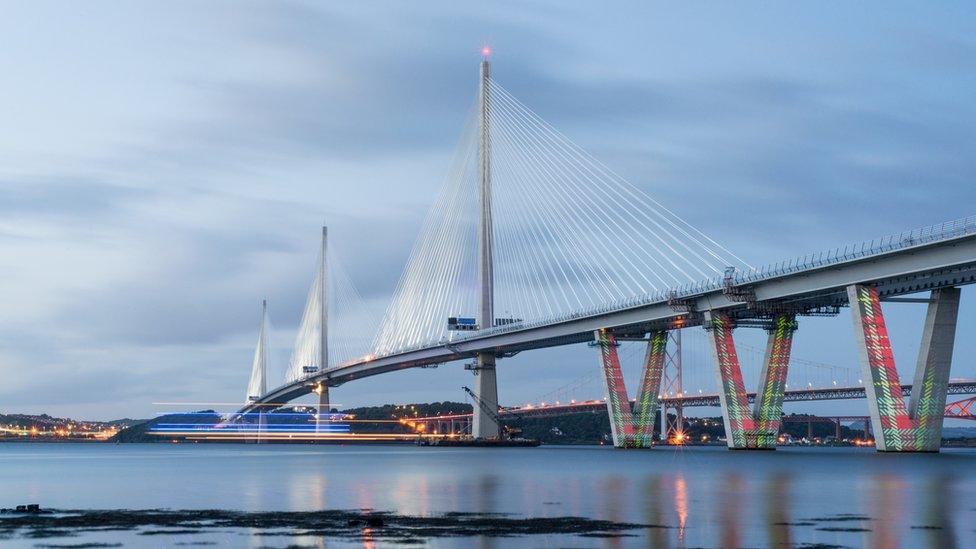Nicola Sturgeon's bridge rage over Queensferry Crossing
- Published
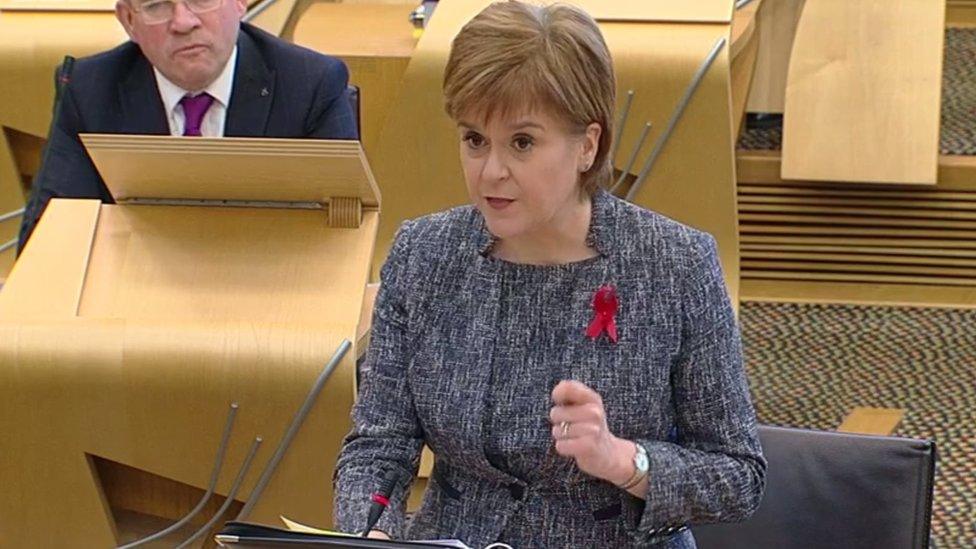
Nicola Sturgeon faced pressure over the bridge at FMQs
Perhaps you have experienced road rage.
Perhaps, whisper it, you have even been provoked into an outburst of anger while at the wheel of a car.
Today Nicola Sturgeon experienced the upgraded version: bridge rage.
The cause of this fury, some of it genuine, was the Queensferry Crossing.
You remember? Magnificent feat of engineering? Under budget? Triumph for Scotland? A wonder of the modern world?
Now set for partial closure? Yes, that's the one.
It is an established fact that every time there is an incident on the roads it is accompanied by a range of alternative perspectives. If, say, two people are involved, there will be at least four explanations on offer.
Such was the case today. Nicola Sturgeon said that snagging was absolutely standard in major engineering projects - and had, indeed, been signalled in advance by the bridge team.
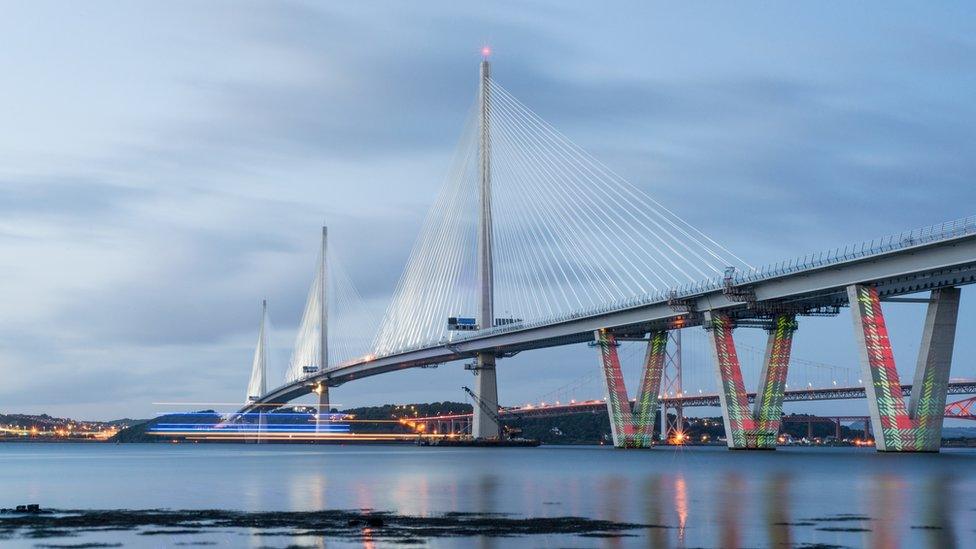
The southbound lanes will reopen on Wednesday 6 December
Her opponents saw things differently, as they would. They said the SNP had been inclined to trumpet the glories of the bridge - while under-playing the problem which had emerged.
Ruth Davidson of the Conservatives claimed that the public had been kept in the dark about the potential problem, even as the bridge was Royally opened.
Now, Nicola Sturgeon could see a potential problem here. She wanted to advise Ms Davidson that she was talking mince. She yearned to dismiss her comments.
Snag is she had a mental image of commuters and freight hauliers sitting fuming in a bridge queue. She knew that their anger might lead them to be more receptive to claims of mishandling.
"Aye", she could hear them yelling at the windscreen, "they were fine when it was a photocall with the Queen. Where are they when we need them? Eh? Nowhere, that's where!"
So Ms Sturgeon was cautious. She understood, she appreciated that folk were furious when there were hold-ups.
But she also believed that they would understand the reasons for the partial shut-down - and appreciate her assurance that there would be no further snagging lane closures during peak times in the period ahead.
Loadsaluck with that one, FM. I think drivers might get the concept in abstract, in principle. But, when they are stuck in the slow lane, with Fife a distant memory or a remote prospect….well, that's different.
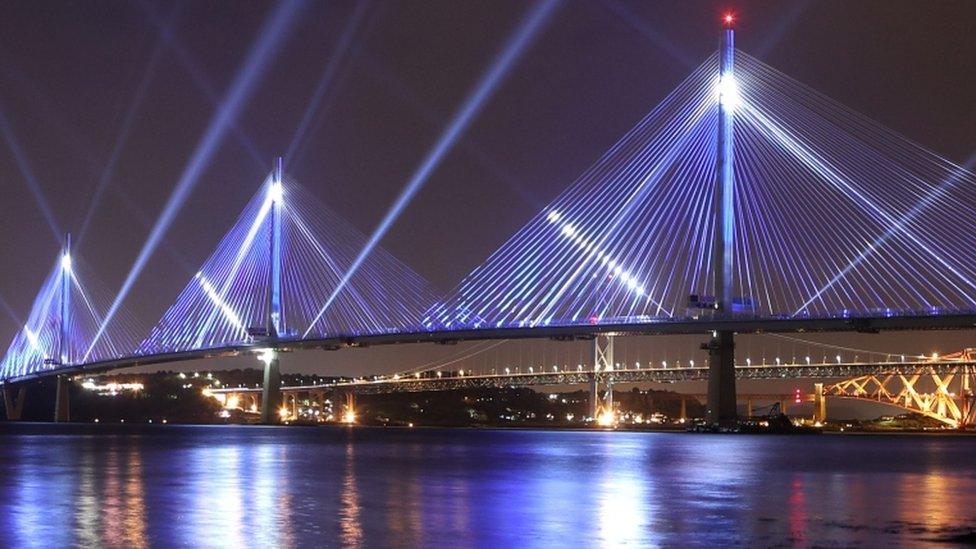
The new crossing was officially opened in September
Ms Sturgeon also generated a little heat of her own. She accused the Tories of raising a canard - then ducking out of listening to the detailed answer.
Yes, she said, a potential problem had been identified at a relatively early point. But it had to be scrutinised and a possible solution found. At that point - and when a weather window for action had opened - it was disclosed to ministers and the public.
All routine. All in order. All standard. Snagging - just as one would expect when, say, moving into a new house.
And were her opponents appeased? Were they silenced? Thought you might say that. For the LibDems, Willie Rennie returned to the attack.
He said the bridge had been closed. She said only one side was to be shut and only for five days. He called that "pedantry". She called it "accuracy".
And off they went again, like two motorists squabbling over a shunt. Mr Rennie said the Scottish government had been happy to "boast" about the bridge - and should now take the hit.
Ms Sturgeon said again, with evident irritation, that she was facing the issue, she was confronting criticism. She had explained in minute detail what was happening to the bridge.
Labour issued a news release about the crossing later. But, in the chamber, Richard Leonard chose to follow a different road.
Scottish local authorities, he said, were £545m short of the cash they needed to provide essential services. Would Ms Sturgeon stump up the dough? Yes or no.
'Opportunity to raise council tax'
Ms Sturgeon explained, none too patiently, that the Scottish Government would set out its budget plans on the advertised date in December and that the settlement for councils had been fair within the stringencies of UK austerity.
She added, with just a note of asperity, that local authorities had had the opportunity, granted to them by a beneficent government, to raise council tax and thus raise revenue.
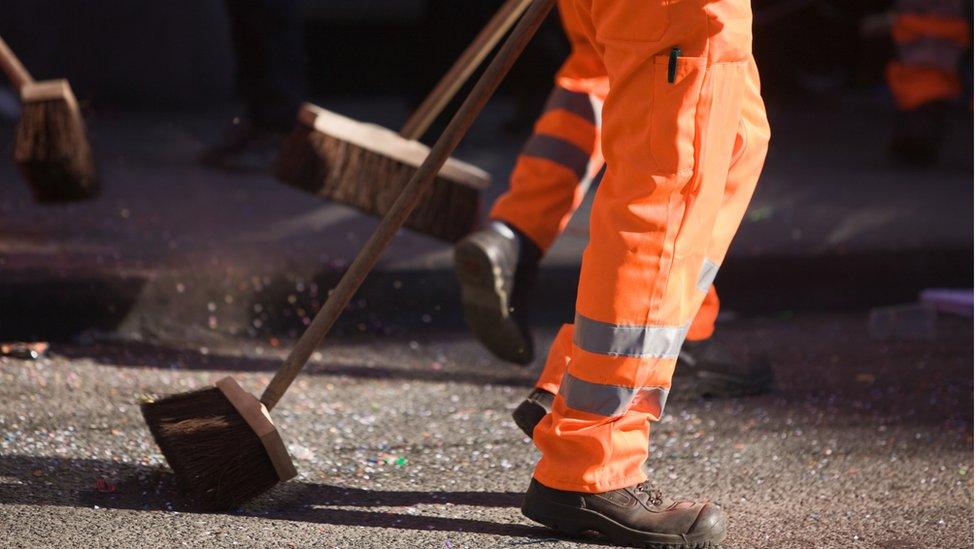
Ms Sturgeon has described the settlement for councils in the coming budget as "fair"
Eight had chosen not to do so, all Labour controlled. Given that fact, she said that Mr Leonard's probing amounted to an "incoherent rant".
Looking just a little hurt, Mr Leonard persisted. Council tax wouldn't raise enough, he said. It needed central government dosh. That meant progressive tax rises.
Which brings us, once more, back to that budget announcement in the middle of next month.
- Published30 November 2017
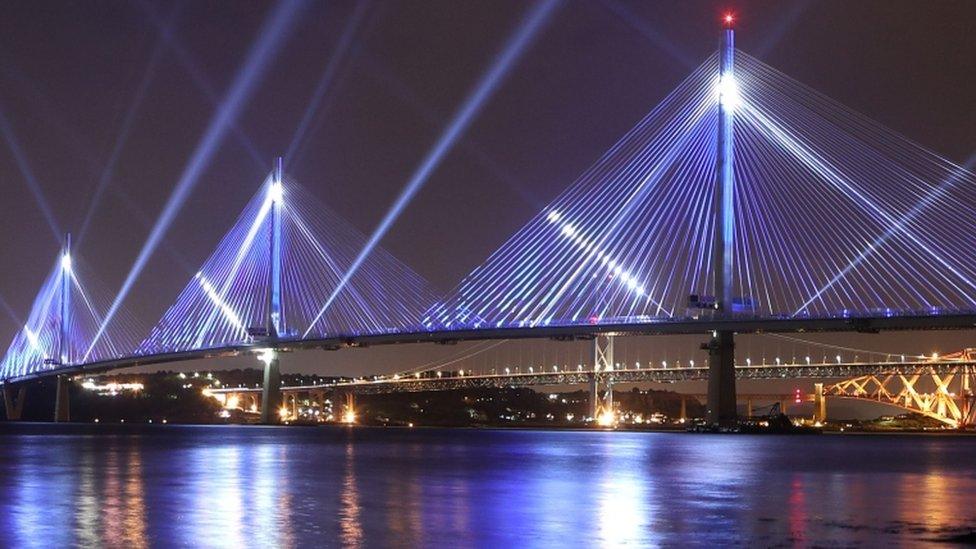
- Published27 November 2017
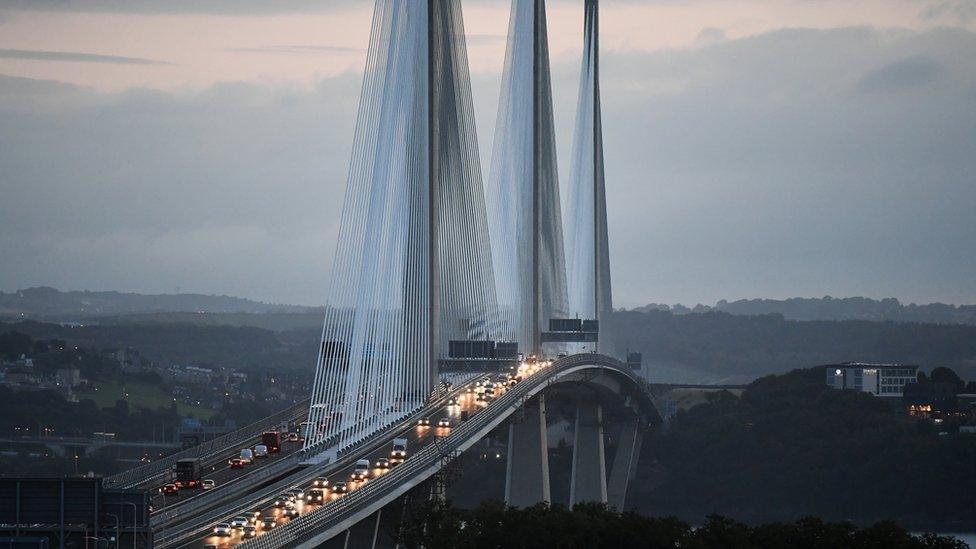
- Published30 November 2017
